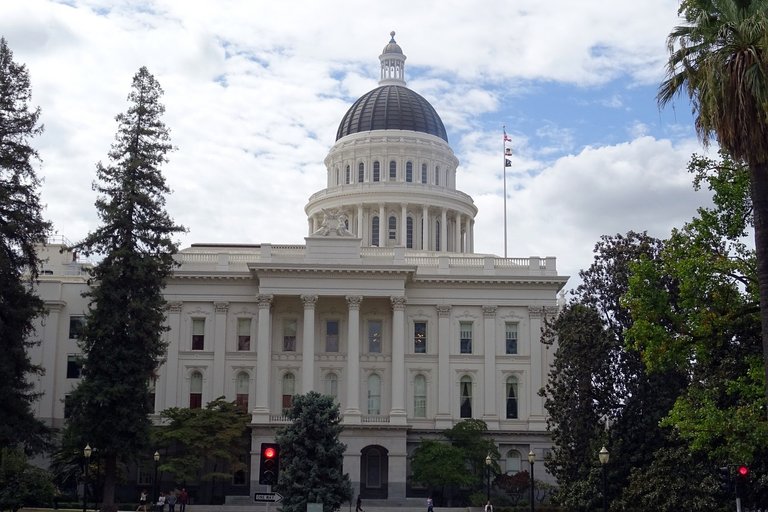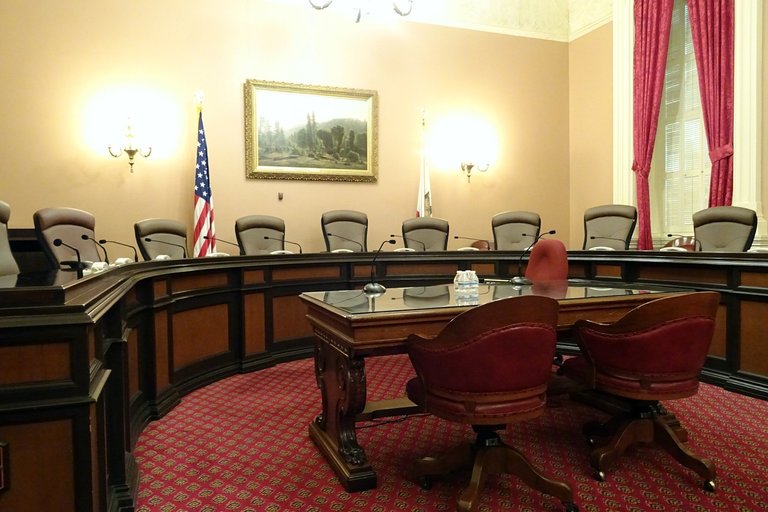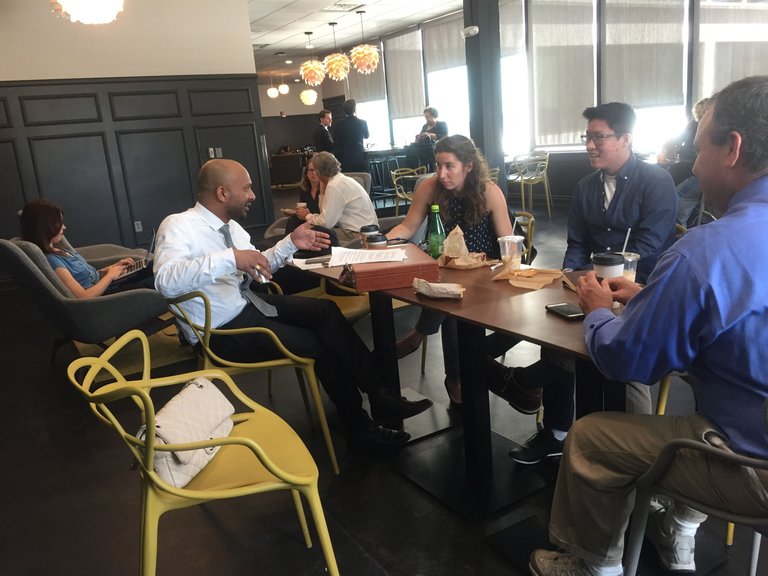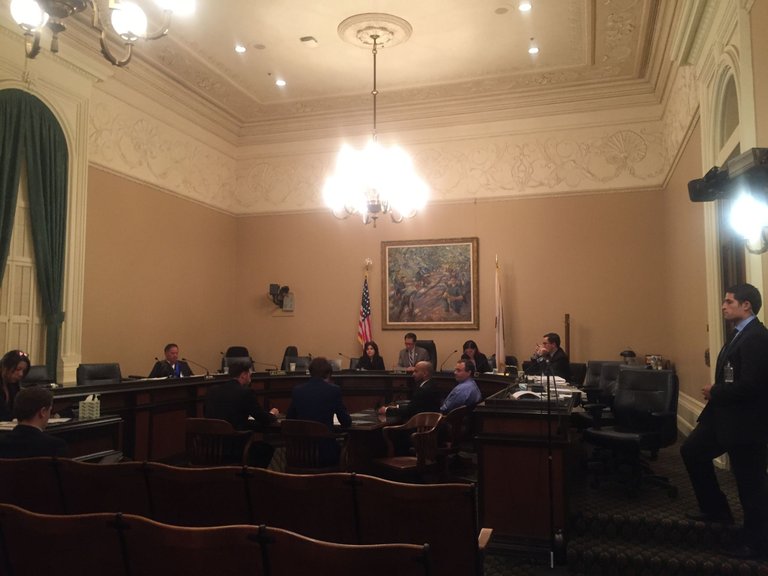
It was Tuesday morning. I have set the alarm to 8 am PT. Greg wanted me to meet him in San Francisco at 10:30 am so we could carpool to Sacramento. Google Maps told me to start driving at 9 am to be there at 10 am. I listened, partly with a deep desire to be there on time and partly with a conscious effort to avoid any San Francisco hills.

Calderon introduced AB 2658 to expand California’s Uniform Electronic Transactions Act (UETA) to include a record “created, generated, sent, communicated, received or stored” via blockchain technology. UETA allows commerce to be conducted electronically, recognizing the validity of “electronic records” and “electronic signatures.” However, electronic records and electronic signatures secured through a blockchain have not been recognized.

Greg had told me that I could take his parking space. Parked, I called Greg, and glanced at Pinterest across the street. Bryant was relatively desolate compared to Mission and Market. I drove around the block looking for parking until Greg arrives, figuring that I was 30 minutes early. His street comprised of a long line of employees waiting for corporate buses to pick up.
AB 2658 expressly recognizes the validity of electronic records and signatures obtained through blockchain technology. “Blockchain Technology” is defined as “distributed ledger technology that uses a distributed, decentralized, shared and reciprocal ledger, that may be public or private, permissioned or permissionless, or driven by tokenized crypto economics or tokenless. The data on the ledger is protected with cryptography, is immutable, is auditable, and provides an uncensored truth.”

I reversed the car and parked in Greg’s parking spot. Chelsea, Greg’s friend, was already waiting on the sidewalk. We carpooled to Sacramento. No one complained about distance. Instead, Greg had good taste in music, and Chelsea spoke of a retreat in a monastery between Rome and Florence. Time flew, and we found ourselves in a Hyatt parking lot. We walked to Starbucks. The Capitol was next to us.
The author has decided to strike smart contracts out of AB 2658 because of the complexities and nuances around smart contracts. Greg believed that there are currently too many bugs in smart contracts and they are not easily legible. I, however, know of a few solutions so that they could be read and understood. Our mission then is to expand UETA to include electronic records and signatures secured through the blockchain technology.
Hungry, Greg wanted to find food. We walked to Ma Jong, where I ordered basil chicken with noodles. The atmosphere was California cool with giant lanterns, long golden tables and traditional black square chairs. After about 30 minutes, however, before we finished our fusion-ish dishes, Ally wanted us to meet the rest of the group at Starbucks. We did.
Jackie and Kent introduced themselves as blockchain entrepreneurs and educators of blockchain technology. David has been working with a number of founders. Ally organized the trip and guided us through the testimony process virtually and now in person.
After scanning and security checks, we waited in a Capitol Cafe until our turn — for a very long time. The conversations among the group centered around capital formation and token sales, smart contracts pros and cons, innovation and blockchain and the division of power between executive versus judicial branches (centering around the SEC and its messages to lawyers et el). I quietly took a few photographs, as I had debated with Greg on smart contracts during the drive. I was grateful that David was also an attorney. He and I understood the meeting of the minds in relation to smart contracts.

What seemed to be hours later, we entered the committee room before the Assembly Committee of Privacy and Consumer Protection. The sessions before AB 2658 were about spamming and content moderation. Adults in the room uttered free speech, Facebook and privacy — topics I have written about years ago in law school. Given the discovery of, and publicity of, such topics nationally and perhaps globally, it is not surprising that the Assembly debated such vital issues.
Greg and David walked up and seated themselves. The rest of us stood behind a mic, waiting for our turn. After the testimonies, everyone in the Assembly Committee of Privacy and Consumer Protection said “Aye.” There, AB 2658 passed the first committee — the Assembly Committee of Privacy and Consumer Protection.
We took a group photograph in front of the State Capitol to serve as memory. On April 3, 2018, I met a group of people I did not know prior with one common goal: to help recognize innovation.



Making waves! Thanks for the upclose look.
Thank you and you’re welcome!
Congratulations @salutemichelle! You received a personal award!
Click here to view your Board
Congratulations @salutemichelle! You received a personal award!
You can view your badges on your Steem Board and compare to others on the Steem Ranking
Vote for @Steemitboard as a witness to get one more award and increased upvotes!